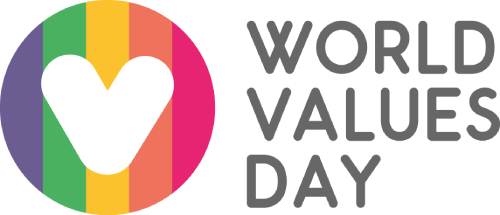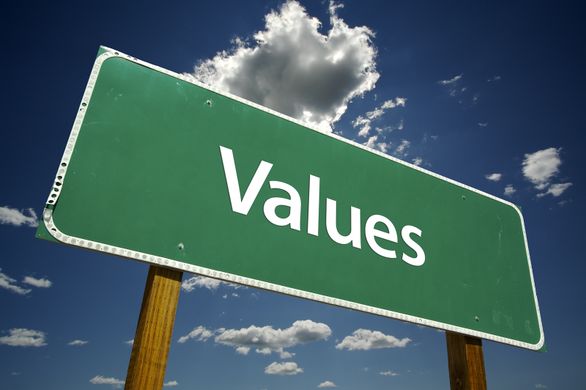By Neil Tomalin
Personal values are unique to every individual and can loosely be described as a set of beliefs or intuitive feelings inside our heads. They act unconsciously as a guide – telling us how comfortable we feel about different situations and are unusual in the sense that they are nebulous. This definition, by a senior cleric in 2016, provides one useful summary: –
“That which is important to you. Those sorts of principles. The way you treat other people. The way you interact with the world. Fundamental things that help you determine that which you consider to be right. And that which you consider to be wrong”.
If the personal values that we hold influence how we act, both in family units and at work, then a greater understanding of the role they play in decision making is important. To what extent, for example, do they guide us to make good life choices?
So, what do you stand for?
Unlike other skills that we acquire, personal values are not subject to any formal scrutiny. Doesn’t this strike you as slightly odd given that, as a society, we are normally obsessed about the testing and measurement of things? Recently, at a gathering of university students, I asked how many of their parents had discussed personal values before they left home. It came as no surprise when not a single hand was raised. Yet many values, like integrity, are very heavily nuanced and certainly worthy of exploration in terms of their ethical component.
Family, friends, schools, universities and employers all influence personal values. Over time, each person is subjected to a unique set of experiences that influences the way that they see the world. However, today there is less formal direction (as the U.K. becomes more secular), making the concept of ever attaining a common set of values virtually impossible. Society is becoming more diverse and, as already discussed, there is a lack of desire for any formal standards or examination.
Of course, finding out what you stand for may not be as easy as you think. When do any of us make time for this to happen? I’m perhaps fortunate that, as a business coach, this forms part of the process I manage with my clients, but you do not need to employ a coach to appreciate what is important to you.
When a coaching intervention takes place, clients are frequently at a crossroads. They need some thinking space and discussing personal values can provide clarity to inform the basis of their future decision making. It never fails to amaze me that for many people this has never happened before. This may sound slightly ridiculous – we all know what we stand for, but in the quiet of a coaching session it is not as easy as you might think to express yourself. Many people struggle to find the right words to describe their values. In much the same way that many corporations struggle to find the relevant words to engage their employees.
Go with the flow
In terms of process, whether you employ a coach or buddy up with a good friend, the first rule is about client engagement. If a discussion on values doesn’t appear to interest them, then I don’t see the point in pursuing it – it is after all their time. I have also tried not to be overly influenced by the various academic studies e.g. Schwartz’s Theory of Basic Values, because I have found that the imposition of a predetermined taxonomy of values is too restrictive. I’m listening for a client to use their own words, not somebody else’s.
Any discussion needs a significant degree of freedom, with no preconceptions in terms of what the answer might be. In order to get there, using a list of word prompts can be effective, but I personally dislike using any form of technique that asks a client to prioritize one value over another. Although this invariably leads to the production of a neat list, it can foreshorten the conversation and hide subtlety from view. Having discounted the more rigid value structures reported by the academics and the use of questionnaire formats, I simply recommend a facilitated conversation, where the client leads, but with a suitable degree of challenge.
A golden rule is that for each agreed value, the client must be able to provide at least one work related example of the behaviour. Otherwise, it goes into the box marked ‘desired values’. This may seem a little harsh, but the exercise is designed to add substance over style and yes, clients often regret putting ‘integrity’ forward so readily!
Having completed the exercise, there are many answers to the question, what happens next? Many of the suggestions are business focused. Reviewing personal values can be particularly good for those wanting to conduct a ‘back to basics’ review and for those seeking a career change. It can be a great place to begin writing a new ‘values based’ resume that can provide differentiation and be informative in developing an authentic and genuine leadership style, as well as being useful in setting the ‘tone from the top’. Finally, exploring individual values in a group situation can be instrumental in devising corporate values, that have greater resonance with employees and are easier to communicate because they simply ‘ring true’.
How would you act in a crisis?
Strongly held personal values can also make a real difference in times of crisis. In my research I was fortunate in interviewing a prominent whistle-blower in the NHS – in a session designed to understand the basis of their motivation to speak out.
One of the key points that arose was the influence of their family: –
“As a child my father was always challenging us to defend our point of view and to question everything we were told in order to identify the truth for ourselves. Incredibly annoying when I was younger, but an excellent grounding to have when launching yourself into adult life and complex situations”.
This raises some interesting questions for us all. How might we display courageous leadership in challenging circumstances and whether they have considered how their combined set of personal values might influence the decision-making process?
I often reflect upon another quote from the session: –
“My strong sense of justice and ‘doing the right thing’ was the driving force to me becoming a whistle blower. This combined with a certain degree of ignorance of the enormity of the situation, both emotionally and politically, gave me the tenacity to not stop acting until action was taken”.
This has been a very short examination of some of the findings from a research project I did in 2016. Reviewing personal values is a fascinating exercise. Individually, we may never find ourselves in a situation equivalent to that of a whistleblower, but we can become more prepared to display courageous leadership by understanding more fully what our personal values are.
Why not try mapping out your own?
Neil Tomalin is the managing partner of the saintclair partnership ltd.






